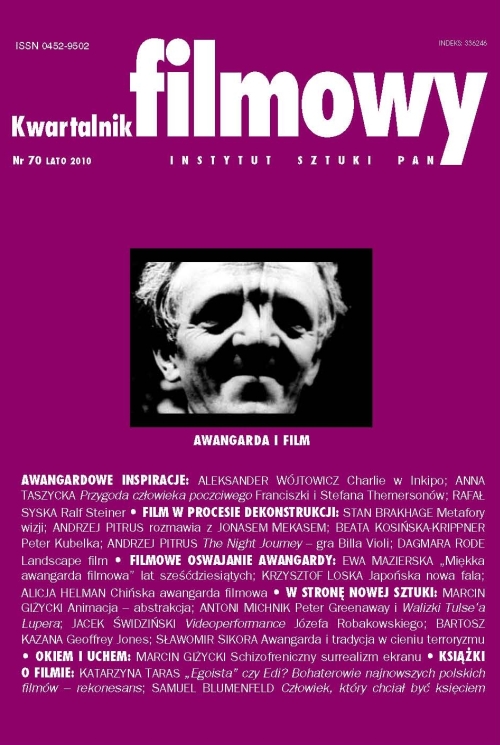Chińska awangarda filmowa i jej konteksty
Chinese Film Avant-garde and Its Context
Author(s): Alicja HelmanSubject(s): Theatre, Dance, Performing Arts
Published by: Instytut Sztuki Polskiej Akademii Nauk
Keywords: Chinese cinema; Fifth Generation
Summary/Abstract: The notion of avant-garde in relation to Chinese art, including film art, first appeared during the decade of 1979-1989, commonly known as the new Era. During that decade, the phenomenon of the “Great Cultural Discussion”, or the “Cultural Fever”, first appeared within intellectual debate and the ideological sphere. The author analyses in detail the factors and conditions (e.g. economic and political modernization, so called Chinese modernism, the negation of soc-realism, referring to the Chinese cultural and arts traditions, the threat of westernization) which shaped what is today called the Chinese avant-garde. The analysis of subsequent films allows the author to conclude that the films of the Fifth Generation as a whole can be considered avant-garde in the exact meaning of the word, only if we define avant-garde very widely – as an artistic practice that goes beyond the current conventions, where the avant-garde artist is an outsider, or a rebel. However if by avant-garde we mean a separate genre or stream of film making (with its own system of production and distribution, especially with its own artists, critics, audience), then one must conclude that there never was an avant-garde Chinese cinema.
Journal: Kwartalnik Filmowy
- Issue Year: 2010
- Issue No: 70
- Page Range: 135-156
- Page Count: 22
- Language: Polish

